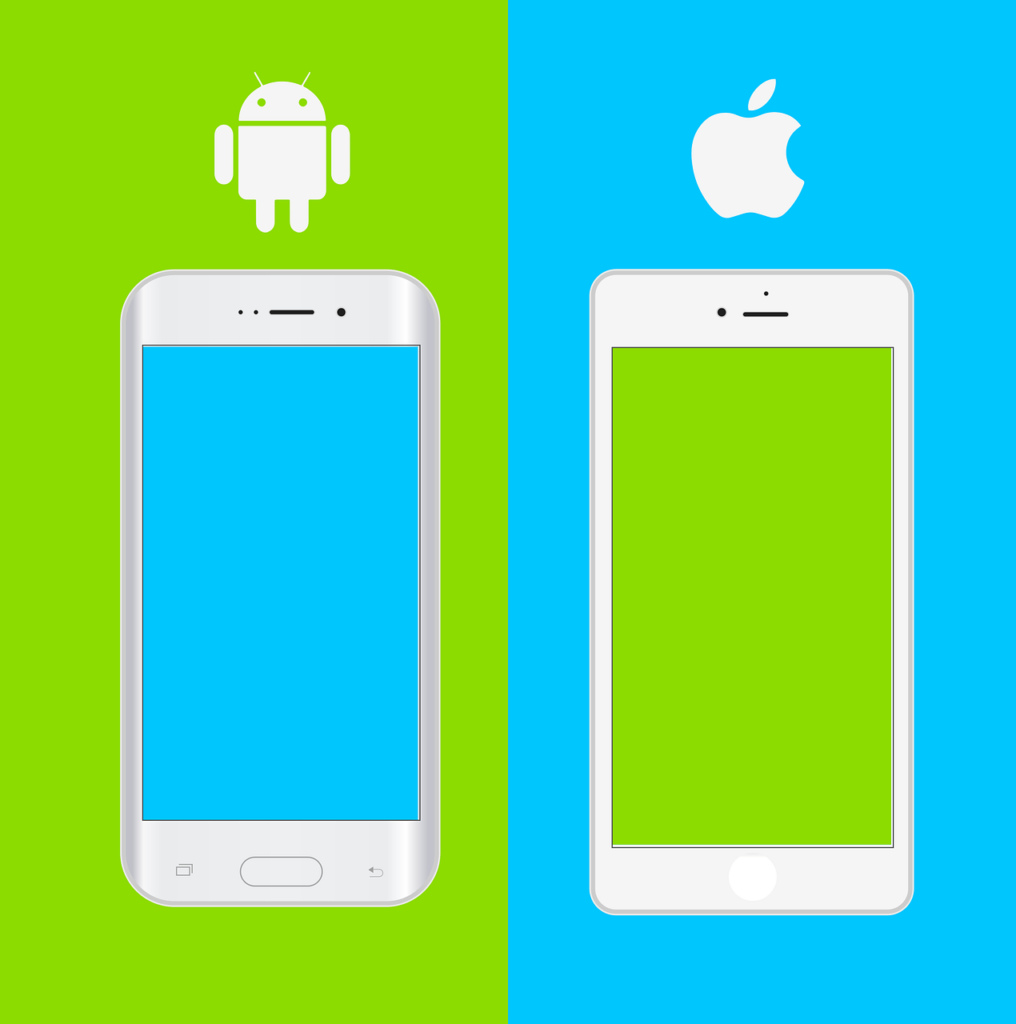In today’s fast-paced digital landscape, mobile applications have become an integral part of our daily routines. They bring convenience and connectivity to our fingertips, whether we’re ordering food or managing our finances. This blog takes you on an engaging journey through the realm of mobile app development, where we’ll explore the ‘what,’ ‘why,’ and ‘how,’ and dive into the latest trends shaping this dynamic field. So, let’s embark on this exciting journey together!

What is Mobile App Development?
Defining Mobile App Development
Mobile app development involves creating software applications tailored for mobile devices like smartphones and tablets. It encompasses building the app’s user interface (UI) and the backend functionalities that power it.
Development Process
The mobile app development process includes coding, testing, and optimization to ensure the app runs seamlessly across various devices and operating systems. Multiple iterations are often required to refine the app and enhance the user experience.
Why is Mobile App Development Crucial for Businesses?
Enhancing Customer Engagement
Mobile apps serve as a direct channel for businesses to connect with their customers, fostering loyalty and brand recognition.
Efficient Sales and Marketing
Apps offer a convenient platform for sales, promotions, and marketing campaigns. Features like push notifications enable businesses to reach customers directly.
Data and Insights
Mobile apps collect valuable data on user behavior and preferences, providing insights for tailored marketing strategies and improved user experiences.
Boosting Accessibility
With mobile apps, businesses are just a tap away from their customers, ensuring continuous accessibility and availability.
The Significance of Mobile App Development Across Industries
Healthcare
Mobile apps facilitate remote monitoring, appointment scheduling, and access to medical information, enhancing patient care and healthcare management.
Banking and Finance
Apps allow users to check balances, transfer funds, and make payments with ease, improving efficiency in financial transactions.
Education
Mobile apps offer interactive and on-the-go learning experiences, revolutionizing the way we acquire knowledge and making education accessible globally.
Retail
E-commerce apps have revolutionized shopping, offering personalized recommendations, seamless checkouts, and 24/7 access to products, transforming the retail landscape.
Entertainment
Apps bring entertainment to our fingertips, from on-demand content streaming services to mobile gaming for recreational enjoyment.
Sports/Fitness
Mobile app development plays a pivotal role in revolutionizing the sports and fitness industry. Athletes, fitness enthusiasts, and sports organizations rely on these apps for personalized training, data tracking, community building, and injury prevention.
Types of Mobile App Development
Native Apps
Native apps are platform-specific, such as iOS or Android, delivering top performance and access to device features. They’re developed using platform-specific languages and tools.
Web Apps
Web apps are platform-independent and accessible through web browsers. While cost-effective, they may have limited functionality compared to native apps and are typically built using HTML5, CSS, and JavaScript.
Hybrid Apps
Hybrid apps combine elements of both native and web apps, offering flexibility and cost-efficiency. They are developed using web technologies (HTML, CSS, JavaScript) and wrapped in a native container.
Progressive Web App Development
Progressive web applications (PWAs) use web technologies to provide enhanced functionality, delivering a unique user experience similar to native apps. Users can install and launch PWAs on their devices, just like native apps.
Mobile Operating Systems
iOS and Android

The mobile app development landscape revolves around two dominant operating systems: iOS for Apple devices and Android for a variety of manufacturers. The choice between them depends on your target audience and business goals.
- iOS: Recognized for its secure and user-friendly environment, iOS excels in apps that prioritize design and user experience.
- Android: Android offers a broader reach due to its presence on various devices, making it ideal for apps with a wide-ranging target audience.
Mobile App Development Languages
Mobile app development languages serve as the foundation for the digital world, enabling developers to create the applications we use daily on our smartphones and tablets. These languages cater to specific platforms and are essential in the development process. Here’s an overview of key mobile app development languages:
Java
Widely utilized for Android app development, Java is versatile and known for its performance. It’s the primary language for creating Android applications, a fundamental skill for Android developers.
Kotlin
Kotlin, a rising star, offers concise syntax, enhanced safety features, and full compatibility with Java, making it a preferred choice among Android developers.
Swift
Apple’s modern and efficient programming language for iOS app development, Swift prioritizes ease of use, speed, and safety, making it the go-to choice for Apple device app development.
Objective-C
While Swift has taken the spotlight for iOS development, Objective-C remains relevant for maintaining existing iOS applications, thanks to its robust and dynamic nature.
JavaScript
JavaScript, the language of the web, plays a crucial role in mobile app development, especially for cross-platform applications. Frameworks like React Native and Apache Cordova enable developers to create mobile apps using JavaScript, streamlining development.
C#
C# is the language of choice for developers using the Xamarin framework for cross-platform app development. Its strength and flexibility make it a top pick for creating mobile apps that run across various platforms.
Mobile App Development Frameworks
Mobile app development frameworks are invaluable tools that simplify the app creation process. They provide pre-built components, libraries, and development methodologies, saving time and reducing costs.
These frameworks ensure a consistent user experience across different platforms.
React Native
Developed by Facebook, React Native is an open-source framework that allows developers to create mobile applications using JavaScript and React. It facilitates the development of cross-platform apps that closely resemble native applications, making it a preferred choice for businesses seeking efficiency.
Flutter
Google’s open-source UI toolkit, Flutter, enables the creation of natively compiled applications for mobile, web, and desktop from a single codebase. It’s renowned for its flexible UI, rapid development, and real-time updates that enable developers to see changes as they work.
Xamarin
Owned by Microsoft, Xamarin is a cross-platform framework that enables developers to build mobile applications using C#. It offers a single codebase for Android and iOS, making it a top choice for businesses aiming to reach a broad audience efficiently.
Apache Cordova (PhoneGap)
Apache Cordova, an open-source mobile app development framework, empowers developers to use web technologies (HTML, CSS, JavaScript) to create cross-platform mobile applications. It provides access to device features through plugins and is recognized for its simplicity.
NativeScript
NativeScript, an open-source framework, enables the creation of native mobile applications using JavaScript, TypeScript, or Angular. It offers direct access to native APIs, ensuring high performance and a genuinely native look and feel.
Appgyver
Appgyver is a low-code development platform that simplifies mobile app development. It’s renowned for its visual development tools and pre-built templates, making it accessible to non-developers while offering flexibility for experienced developers.
Adobe PhoneGap
Acquired by Adobe, PhoneGap is a popular open-source framework for creating cross-platform mobile apps using web technologies. It provides an array of plugins and extensions to access device capabilities and is favored for its user-friendly approach.
These frameworks cater to various development needs, whether you intend to create cross-platform apps with a single codebase, build natively compiled applications, or opt for a low-code platform. The choice of framework often hinges on project requirements, developer expertise, and the target audience.
These frameworks empower developers to create potent, user-friendly applications with efficiency.
Latest Trends in Mobile App Development
Augmented Reality (AR)
The integration of AR enhances user experiences by offering interactive and immersive content. AR finds applications in gaming, virtual try-on, and location-based experiences.
Internet of Things (IoT) Integration
Mobile apps are increasingly interacting with IoT devices, enabling users to control smart home systems, monitor health parameters, and manage IoT-connected devices.
5G Technology
The advent of 5G technology transforms mobile app experiences with faster download speeds, reduced latency, and enhanced real-time features. Apps relying on high-speed data transmission significantly benefit from this development.
Enhanced App Security
As data and privacy gain prominence, enhancing app security becomes paramount. Robust security measures and encryption are critical trends in ensuring user data protection.
Machine Learning and Artificial Intelligence
Machine learning and AI integration in mobile apps personalize user experiences, offer recommendations, and automate processes, enhancing user engagement and efficiency.
Mobile App Development Process
Development Stages
Ideation: Define the app’s purpose, target audience, and core features.
Planning: Create a detailed project plan, including scope, timelines, and resource allocation.
Design: Develop the app’s user interface and user experience, emphasizing engaging and intuitive design.
Development: Write the app’s code, incorporating front-end and back-end components.
Testing: Conduct rigorous testing to identify and resolve any bugs, ensuring the app functions smoothly.
Deployment: Release the app on app stores for user access.
Maintenance and Support: After deployment, provide ongoing support, updates, and improvements to keep the app running smoothly.
Why Choose Thinkflair Technologies?
You might wonder, “Why should I opt for Thinkflair Technologies for my web development needs?” Here’s the secret behind our excellence:
Rapid Development
We offer double the development speed, ensuring fast project execution and saving you valuable time.
Best Quality at Competitive Rates
Our services provide unmatched quality at highly competitive rates, ensuring you get the best value for your investment.
Free Design & Consultation
Benefit from our free consultation and design services, enhancing your project’s success.
24/7 Personalized Support
We provide around-the-clock personalized support, ensuring your needs are met and your questions are answered at any time.
Ready to Craft Your Digital Experience?
The digital universe is yours to conquer, and at Thinkflair Technologies, we’re here to guide you. Our mobile app development expertise, cutting-edge technologies, and meticulous processes are at your service. Let’s bring your digital dreams to life together. Contact Us!